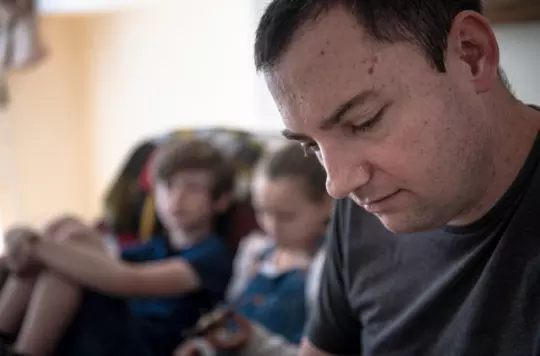3 August 2022
Homelessness funding: Why I'm optimistic about the future
Jeremy Bushnell

Policy Officer Jeremy Bushnell shares insight into the Public Affairs Unit’s latest report.
Before starting my employment with The Salvation Army, I worked for an older people’s charity and my focus was on social care. For four years I campaigned for increased funding for the care system and a proposal for reform. When I left, the policy landscape had not changed much. There was still little sign of new funding and the much-promised green and white papers were still nowhere to be seen. As a policy professional whose aim is to improve the lives of society’s most vulnerable people, it was a very disheartening period.
That is why it was such a positive and different experience when I listened to the UK chancellor commit £640 million annually to tackle homelessness in the government’s 2021 comprehensive spending review. I was still in the early days of my time covering homelessness and getting exactly what we had been calling for was quite frankly astounding.
It did, however, pose a question I had not faced before: now that money is being made available, what next?
This week we have launched a new report designed to answer that very question.
Homelessness Funding: What Next? sets out why we believe addictions and mental health support must be front and centre of any future spending plans for tackling homelessness.
I know that many people who are reading this will already be aware of the links between homelessness, addiction and mental health. While many people often think that addictions cause the other two, the reality is very different. In truth, homelessness, mental ill health and addictions are often intertwined and each one is just as likely to lead to the others.
In essence, our new report explains a simple, yet concerning narrative: in the past decade or so, local authorities in England and Wales (particularly in England) have severely reduced their funding in substance misuse and mental health. At the same time, there has been an alarming increase in drug-related deaths and mental health issues among people experiencing homelessness.
Given this worrying trend of reducing specialist funding and increasing need, we are calling on the government to ring-fence the majority of the new homelessness funding for tackling addictions and mental health.
Focusing on these areas is not just a logical step in terms of developing homelessness policy, but to me it also supports a wider issue about how we support individuals.
One of The Salvation Army’s values is compassion. If you want to treat anybody with compassion, it is important to look at an individual’s wider life. There are so many challenges that can shape someone’s circumstances and so, when we talk about ending homelessness or ending other types of social injustice, it is important we take a holistic view.
As with all policy work, this research is just the start. We will continue to make the case for addictions and mental health in homelessness funding over the coming years by meeting with MPs and all-party parliamentary groups, conducting new research, submitting parliamentary questions and planning various other activities.
So, while there is still a lot of work to do, the very fact we are in a position to talk about how available money should be spent is cause for optimism.
If you would like more information about this report, please contact public.affairs@salvationarmy.org.uk.
Written by

Jeremy Bushnell
Policy Officer (Homelessness), Public Affairs Unit

Captain Marion Rouffet highlights the role of the Army’s Public Affairs Unit and the biblical basis for its work.

We speak into areas of public policy to support change for the benefit of some of the most disadvantaged people in our communities.

Core Recovery is a model of church that has grown out of our work supporting people with addictions.


